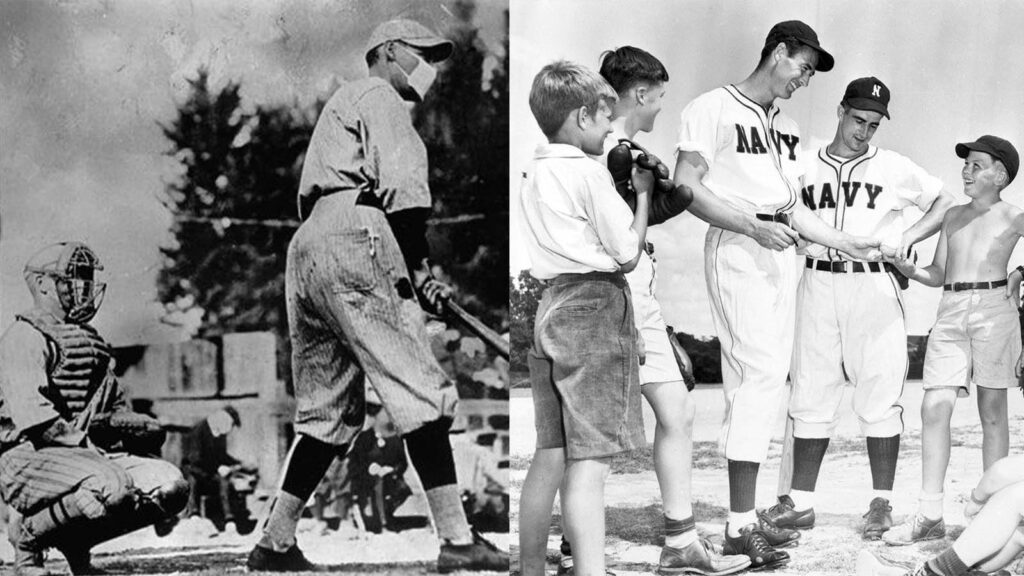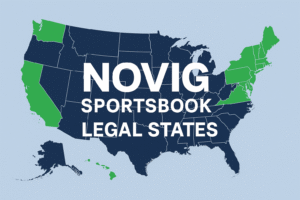Coronavirus & Sports: History Has Halted Games In The Past

Must be 21+ to participate (18+ in KY). Gambling problem? Call 1-800-GAMBLER (CO, IL, IA, KY, KS, LA, MD, MO, NC, NJ, OH, PA, TN, VA). Call 1-800-NEXT-STEP (AZ). Call 1-800-9-WITH-IT (IN). CALL 1-877-770-STOP (LA). Must be present in LA (select parishes). Licensee partner Amelia Belle Casino. Minimum $10 deposit required. Minimum odds -500 or greater. Bonus Bets wager excluded from returns. New customers only. T&Cs, time limits and exclusions apply.
The coronavirus has put much of the pro and collegiate sports world in a state of uncertainty. Here is a look at other key moments in sports history when the games were halted for non-labor-related issues.
Spanish Influenza 1918-19
The pandemic struck worldwide and claimed more than 675,000 American lives. The disease afflicted roughly one-third of the planet’s population and killed as many as 100 million people in all. It spread quickly across the United States — not due to commercial air travel — but by U.S. troops being trained for World War I and those coming to and from Europe.
Professional baseball played on, but the pandemic claimed several who played.
White Sox, Indians and Boston Braves outfielder Larry Chappell, who played in the majors from 1913 to 1917, died from the virus. It also claimed Negro League star Ted Kimbro and umpire Silk O’Loughlin. Then 46, O’Loughlin was considered among the best umpires in the game.
One ballplayer who successfully battled the flu on two separate occasions was 23-year-old Babe Ruth, then a pitcher for the Boston Red Sox.
RELATED: Get The Latest On Coronavirus Cancelations & Postponements
Behind Ruth’s pitching mastery (2-0, 1.06 ERA in 17 innings), the Red Sox beat the Chicago Cubs to win 1918 World Series in six games. Doctors in Boston warned against playing the games in what was then still a modern Fenway Park because of the likelihood of the illness spreading among fans. It would be the only Fall Classic played entirely in the month of September.
Less than two weeks later, a cartoon from the Philadelphia Inquirer on Oct. 6, 1918 portrayed a disheveled, cigar-chomping fan sitting atop a sporting world that had been “closed on account of illness.”
Throughout the fall, public gatherings and sporting events were canceled across the nation, including high school and college football games and boxing matches. Other games were played in empty stadiums.
Eventually, the influenza outbreak would bring the Stanley Cup Final to a premature halt. The Montreal Canadiens tied the series with the Seattle Metropolitans at 2-2-1 after an overtime victory on March 30, 1919. However, Montreal players were stricken during the series and several collapsed during Game 5 with high fevers. The Canadiens could not field a team for Game 6 on March 1.
The NHL initially awarded the title to Seattle, but the Metropolitans refused to accept the Stanley Cup given the circumstances. Montreal Canadiens defenseman Joe Hall died of the flu on March 5. To this day, the Stanley Cup says “Series Not Completed” under its 1919 entry. No futures bets were paid.
While the 1919 World Series was played without major flu concerns, it would become infamous for a cheating scandal involving the Black Sox. Eight Chicago White Sox players took bribes from a gambling syndicate led by Arnold Rothstein to throw games. The underdog Cincinnati Reds won the series in eight games. Commissioner Kenesaw Mountain Landis would eventually ban Eddie Cicotte, Chick Gandil, Joe Jackson, Buck Weaver, Fred McMullin, Charles Risberg and Oscar Felsch for life.
At that time, gambling was a fixture in baseball and gamblers were common sights around major-league ballparks.
World War II
President Franklin Roosevelt famously allowed baseball to continue during World War II, even though many of the game’s best players would join the fight against the Axis.
FDR’s ”Green Light” letter in 1942 to Commissioner Kenesaw Mountain Landis gave the OK for baseball to continue. It was viewed as a signal that despite the war, Americans would be able to continue parts of their pre-war lives. It was also seen as a way to provide relief for weary workers and soldiers at home.
“If you believe we ought to close down for the duration of the war, we are ready to do so immediately,” Landis wrote. “If you feel we ought to continue, we would be delighted to do so. We await your order.”
Just one day later, on Jan. 15, 1942, FDR responded.
In part he said: “Here is another way of looking at it — if 300 teams use 5,000 or 6,000 players, these players are a definite recreational asset to at least 20,000,000 of the fellow citizens — and that in my judgment is thoroughly worthwhile.”
RELATED: What Will Sportsbooks Do About Futures Bets?
The quality of baseball was sharply diminished during the war years. Among the major-leaguers who served in uniform were Joe DiMaggio, Ted Williams, Bob Feller, Hank Greenberg and Jerry Coleman. Both Coleman and Williams also served during the Korean War, with Coleman being the only major-leaguer to see combat in both conflicts.
Among the other sporting causalities of World War II: the 1940 and 1944 Winter and Summer Olympic Games; the Tour de France; the 1942-45 Indianapolis 500s and several of golf’s “major” tournaments. The Masters was not played from 1943-45; the U.S. Open did not take place from 1942-45 and the British Open did not occur from 1940-45. The Wimbledon tennis championships were played in 1939, just before England was drawn into the war, but did not resume until 1946.
At that time, sports betting was illegal across America and primarily the domain of organized crime. Sports betting would return above ground in the United States in 1949 when Nevada legalized the practice to boost tourism.
President Kennedy’s Assassination
John F. Kennedy was assassinated on a Friday — Nov. 22, 1963. As the nation and world stumbled forward in a state of mourning and shock, the NFL played its games two days later. The upstart AFL canceled its games that same weekend. The NFL was not alone in playing. Several major college football teams played and the NBA went ahead with its scheduled Saturday and Sunday games. The NHL played Sunday, too.
History would vindicate the AFL’s call.
In opting to play, NFL commissioner Pete Rozelle said “Football was Mr. Kennedy's game. He thrived on competition."
Rozelle arguably had the most impact of any commissioner in the history of pro sports. He ruled the NFL for three decades, created the national TV contract that powered the sports into a behemoth and oversaw the merger of the NFL and AFL. But Rozelle would later say that his call after Kennedy’s death was the greatest mistake of his career. CBS opted not to televise any games that weekend, sticking with news coverage of Kennedy’s death.
9-11
Terror stuck American soil on Sept. 11, 2011, and 2,977 victims died in attacks on the World Trade Center, the Pentagon and when Flight 93 crashed in Pennsylvania.
Having learned from the mistakes after JFK’s assassination and other related events, the NFL and Major League Baseball quickly suspended play. All major college football games were also postponed.
In the current coronavirus crisis, social distancing is seen as a mitigating circumstance in preventing the disease’s spread. After 9-11, social gatherings and sports in particular were seen as vital tools in getting America back on its spiritual and economic footing.
Ten days after the attacks, baseball returned to New York when the Mets played host to the Braves. That game proved pivotal in the healing of the Big Apple and the nation.
The Yankees and Diamondbacks would meet in the World Series. President George W. Bush’s first pitch before Game 3 at Yankee Stadium was both a strike and hit a home run in terms of lifting the country’s spirit. That series also brought us Derek Jeter’s “Mr. November” moment. And there were stellar pitching performances by Randy Johnson and Curt Schilling as the heavy underdog Diamondbacks won in seven games.
The NFL returned on Sunday, Sept. 23, after a one-week break. Massive patriotic displays occurred at stadiums across the league. After 9-11, every jersey in the NFL featured the name of a victim killed in the attacks. The jerseys worn by players for the New York Giants and Jets featured patches with the names of first responders who fell at Ground Zero.
During the Patriots–Jets game on Sept. 23, Mo Lewis of the Jets knocked Drew Bledsoe out of the game with a shot to the ribs on a sideline tackle. Bledsoe would be replaced by a second-year QB from Michigan named Tom Brady. The 9-11 delay pushed the Super Bowl into February for the first time. Brady and Patriots, who were 14-point underdogs, would beat the Rams 20-17. It would be, in terms of point spreads, the second-biggest upset in Super Bowl betting history.
About the Author

Bill Speros is an award-winning journalist and editor whose career includes stops at USA Today Sports Network / Golfweek, Cox Media, ESPN, Orlando Sentinel and Denver Post.

 Novig Promo Code BOOKIES Score $25 +1,000 Novig Coins For NFL Playoffs Predictions (Jan. 17)
Novig Promo Code BOOKIES Score $25 +1,000 Novig Coins For NFL Playoffs Predictions (Jan. 17)  Where Is Novig Legal? Guide to 42 Novig Legal States
Where Is Novig Legal? Guide to 42 Novig Legal States  Novig Refer A Friend Bonus Claim $25 in Novig Cash For Both Users
Novig Refer A Friend Bonus Claim $25 in Novig Cash For Both Users  Onyx Odds Promo Code: Claim $100 For NFL Playoffs Free Picks (Jan. 17)
Onyx Odds Promo Code: Claim $100 For NFL Playoffs Free Picks (Jan. 17)  Kalshi Promo Code BOOKIES Score $10 Bonus For NFL Playoffs Predictions (Jan. 17)
Kalshi Promo Code BOOKIES Score $10 Bonus For NFL Playoffs Predictions (Jan. 17)  ProphetX Promo Code BOOKIES: Claim $100 Deposit Match for NFL Playoffs Predictions (Jan. 17)
ProphetX Promo Code BOOKIES: Claim $100 Deposit Match for NFL Playoffs Predictions (Jan. 17)
Comments